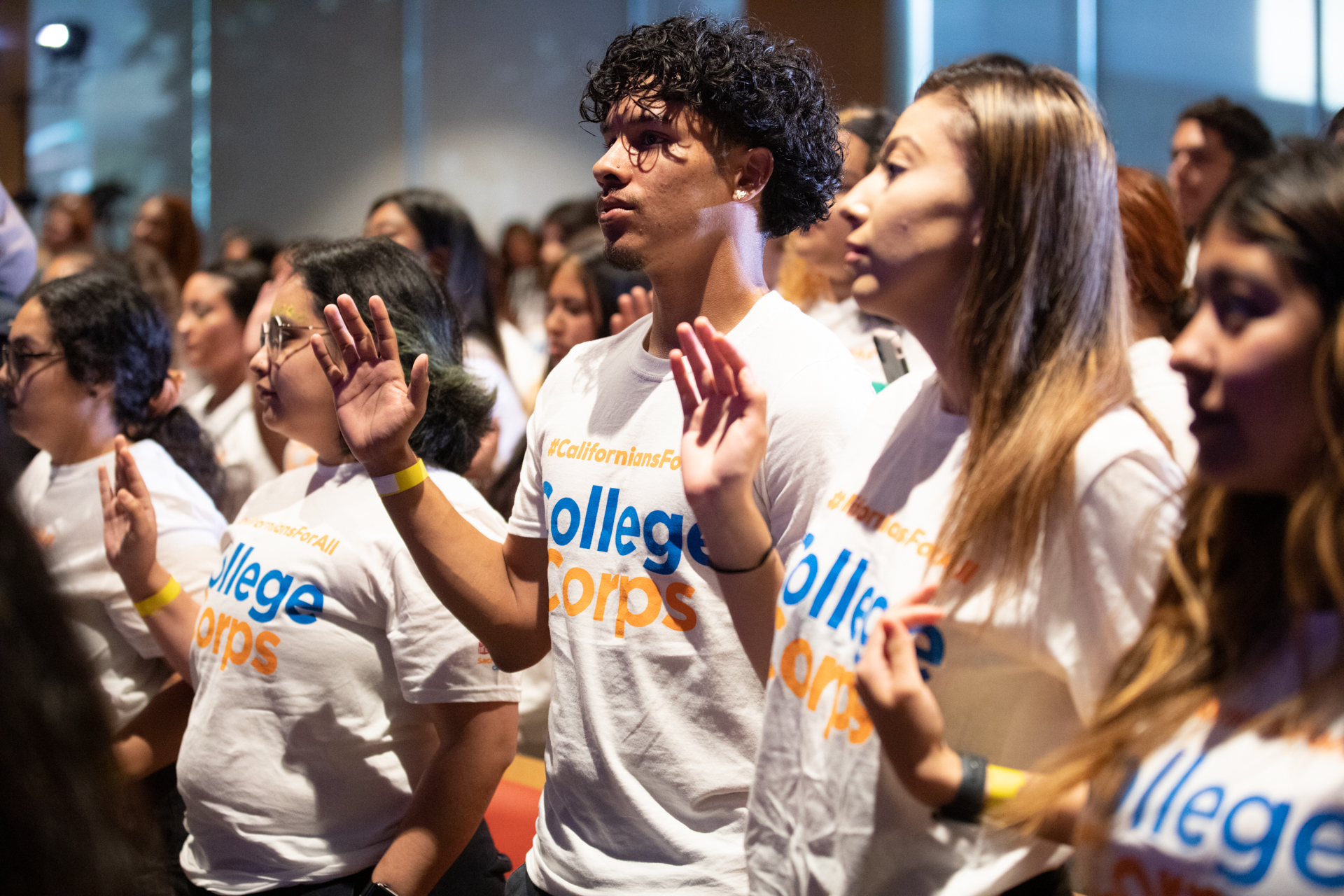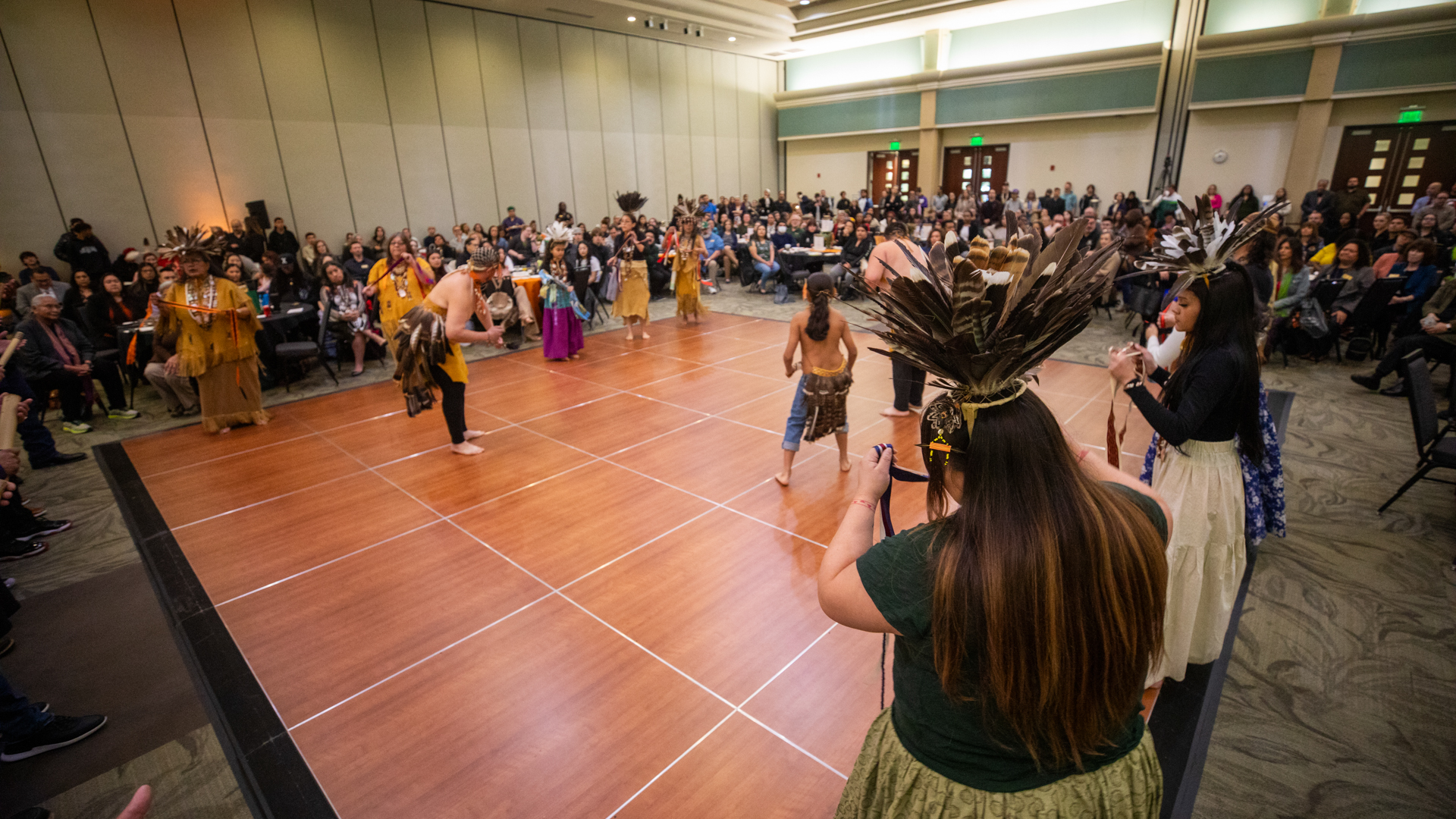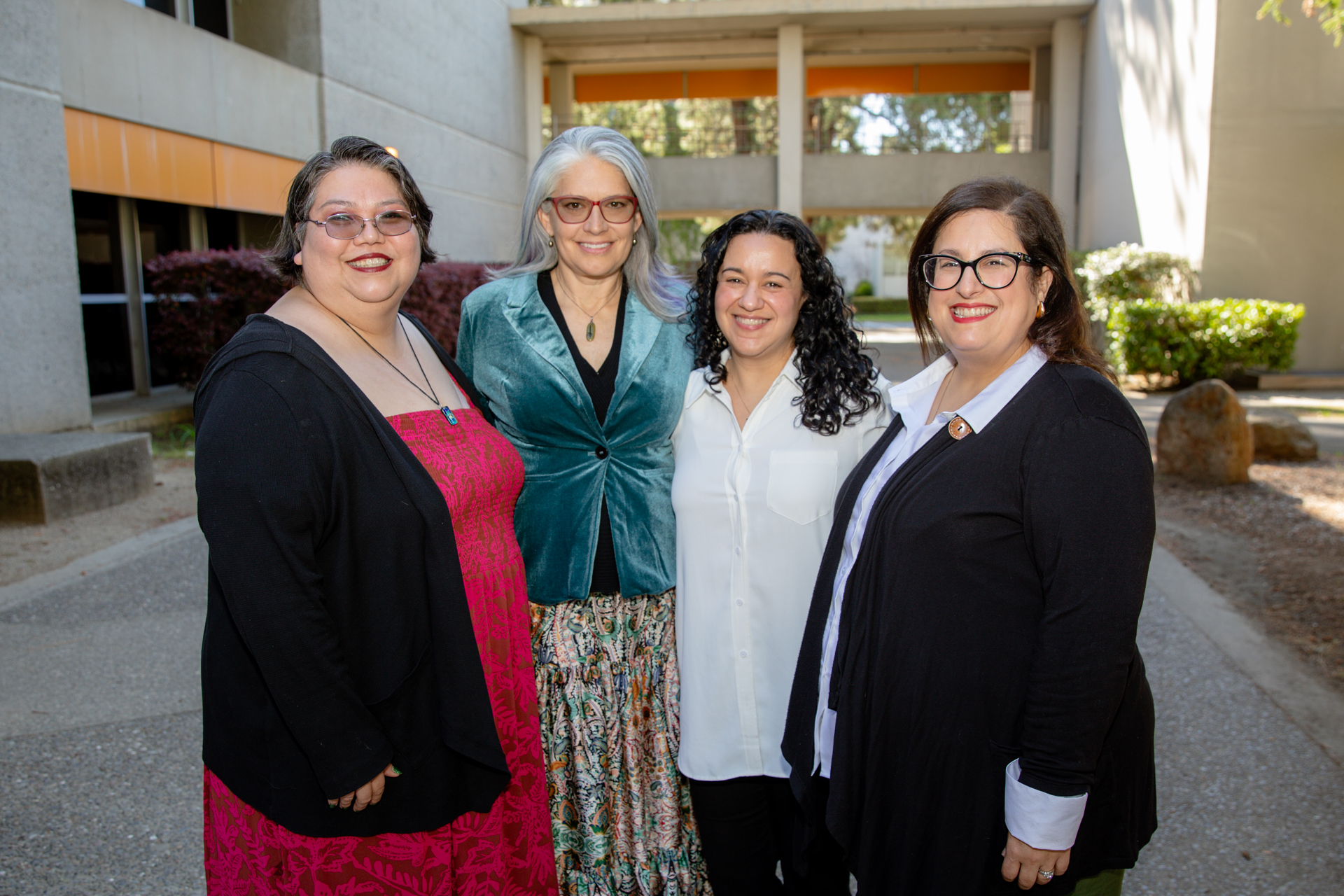Story Content
Ten former foster youth students at Sac State to receive guaranteed income through new United Way program
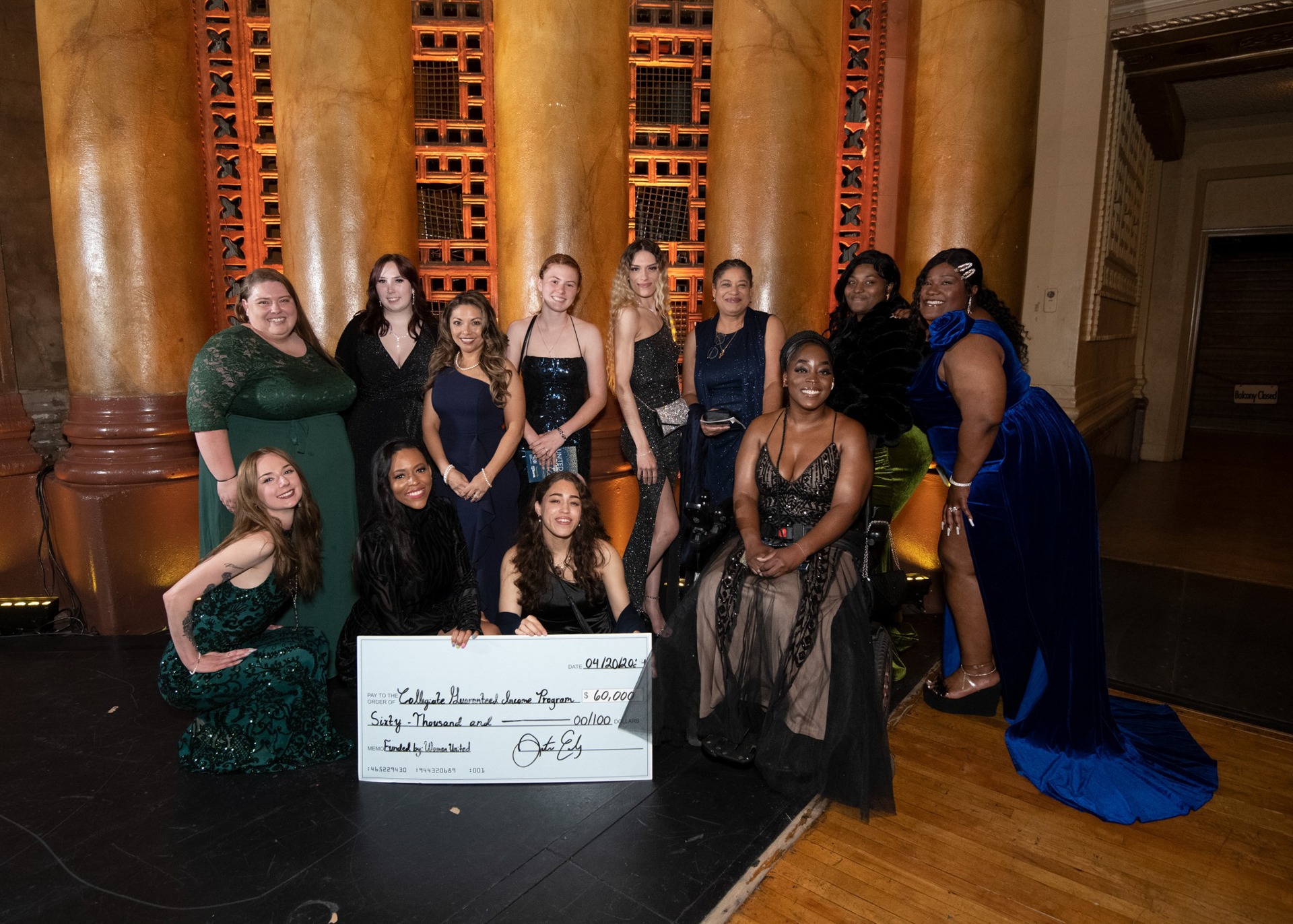
April 22, 2024
Ten Sacramento State students will receive $500 a month for a year thanks to the United Way California Capital Region’s new Collegiate Guaranteed Income Program for former foster youth.
United Way announced the new program, surprising student recipients in the audience, during its United in Purpose Gala at the Sacramento Memorial Auditorium on April 20.
The students, who are part of Sac State’s Guardian Scholars program for former foster youth, cheered and wiped away tears at the unexpected news.
“It’s surreal to know I have these funds to feel secure and not have that worry so I can focus on my grades instead of finances,” said Jaliyah, one of the student recipients, after the gala. “To have a team of people who care about you when you’ve grown up feeling like nobody cares about you, and to have strangers love you and uplift you to push you to be your greatest, you can’t match that.
“I’m beyond ecstatic and beyond thankful.”
More than 23,000 teenagers age out of the U.S. foster care system each year, according to the National Foster Youth Institute. Only about 3-4% earn a college degree.
“It’s not a handout, it’s a hand up. Education was my ladder out of poverty, so it’s important to be able to give others the opportunity to finish and to lift themselves out of poverty.” -- Dawnté Early, United Way California Capital Region president and CEO
Housing and food insecurity as well as unexpected financial needs are among the reasons former foster youth who enroll in college don’t finish, said Linda Howe-Ram, Guardian Scholars’ director of Foster and Community Youth Initiatives.
“Not having a family support system to fall back on in times of financial need is one of the biggest barriers students who have experienced foster care encounter,” she said.
A quarter of former California foster youth surveyed experienced being unhoused between the ages of 21 and 23, a 2020 CalYOUTH study shows. Another 28% said they couch surfed.
In addition, 28.2% of former foster youth attending college qualified as being food insecure.
“I was once a foster youth myself, so I understand firsthand the immense challenges this population faces in pursuing higher education,” Sac State President Luke Wood said. “Too often, students who were in the foster care system lack the financial and emotional support structures that many of their peers take for granted.”
Wood, who sometimes slept in his car while he was a student at Sac State, has often spoken about searching for spare change to buy food and going for days without eating, making it difficult to focus on classes.
“This groundbreaking partnership with United Way reflects our community’s deep commitment to empowering these resilient scholars and ensuring they have the resources to not just survive but thrive on their academic journeys,” Wood said. “This program will alleviate some of the financial burden, allowing our students to focus wholeheartedly on their studies and personal growth.”
United Way California Capital Region has served Amador, El Dorado, Placer, Sacramento and Yolo counties since 1923 with literacy programs, housing and food security assistance and the region’s largest tax preparation initiative.
United Way also launched Sacramento’s first guaranteed income program in 2021 to help struggling residents make ends meet amid the rising cost of living. In 2023, the organization received 15,000 applicants for 80 slots.
“There’s an immense need,” said Dawnté Early, United Way California Capital Region president and CEO. “It can be pretty startling when you quantify it. A lot of families out there are hurting right now with inflation, high rent and the high cost of gas.”
After hearing how Wood struggled with housing and food insecurity as a student at Sac State, Early said it seemed natural to reach out to former foster youth.
(Story continues below the photo.)
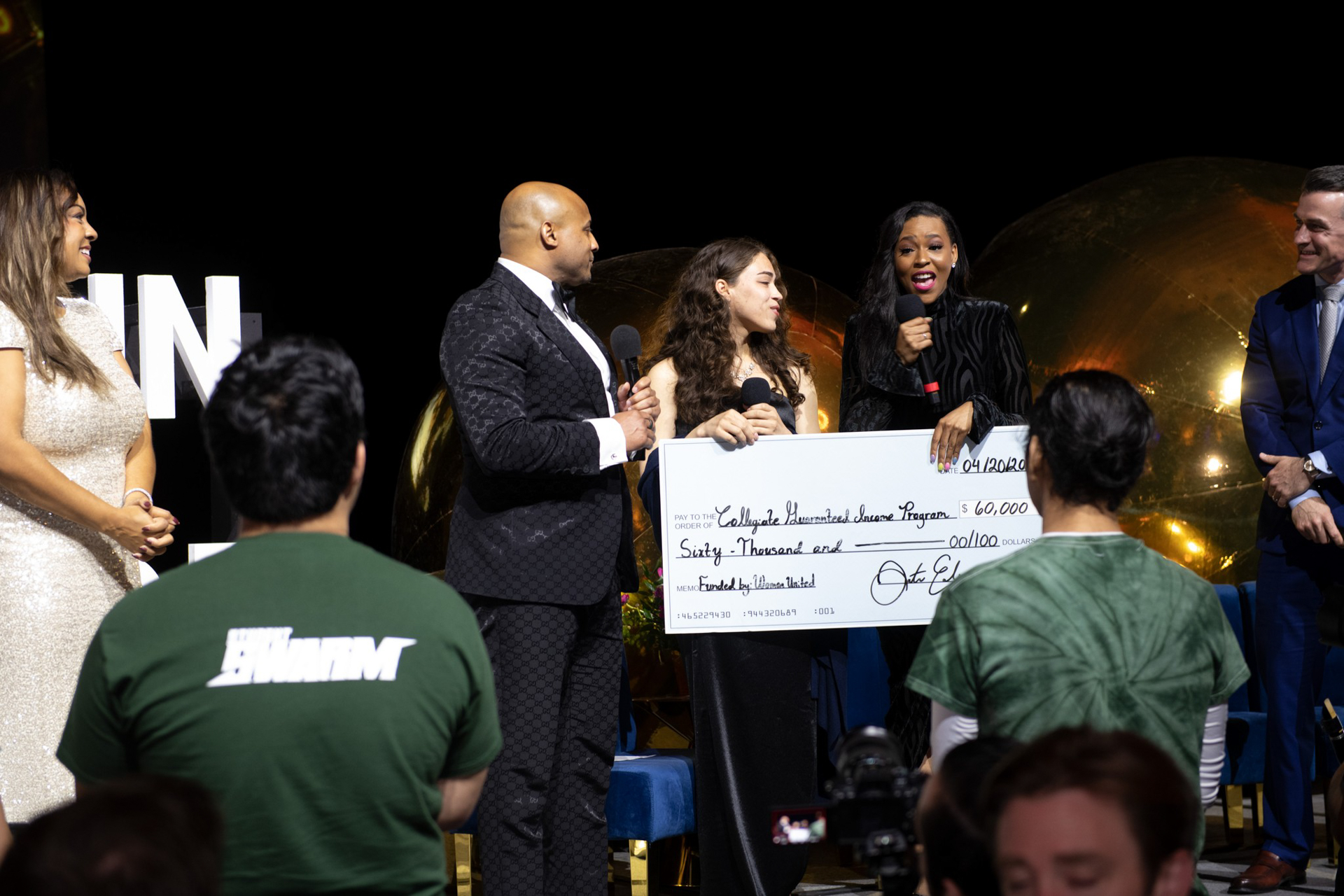
“Our ultimate mission is to end poverty, and we can do that by investing in education,” Early said. “We have programs for kids starting at birth, so it felt only relevant and necessary to have a program that helps former foster youth as they transition into college.”
The monthly checks will begin in May, and students will be able to use the money as they see fit. The idea is to help them pay for basic needs so they can focus on finishing school rather than working more hours to put food on the table or pay their rent. Students had to meet specific criteria to be chosen for the program, Howe-Ram, the Guardian Scholars director, said.
“It’s not a handout, it’s a hand up,” Early said. “Education was my ladder out of poverty, so it’s important to be able to give others the opportunity to finish and to lift themselves out of poverty.”
Funding for the Collegiate Guaranteed Income Program will come from Women United, a United Way action group that has focused on helping foster youth for more than 20 years.
“As a former foster youth myself, I didn’t have parents or family to lean on as I pursued higher education,” said September Hargrove, United Way board liaison for Women United and JPMorgan Chase executive director of community banking for Northern California.
“I didn’t want to go to my high school graduation because I knew I didn’t have folks in the audience to cheer me on. We want to let these students know, they have a whole group of women and the community cheering them on.
“You’re constantly reminded that you don’t have the security, you don’t have the stability or the family support. Education is a pathway that can unlock so many doors and opportunities. We wanted to help former foster youth transition into obtaining higher education.”

Early and Hargrove said they hope to expand the Collegiate Guaranteed Income program to other colleges and universities in the region.
Alisha, a Sociology major who wants to attend law school, said she often questions whether she should be at Sac State.
“But when I have opportunities like this, it reinforces to me that I’m doing something that will change not just my life but other people’s,” Alisha said. “My purpose is to help other people, so they’re able to move forward and succeed.”
Students said the money will help them pay for food, books and tuition.
“It will also help me out with gas,” said Asia, a Business student who commutes to Sac State from West Sacramento. “I have a husband and a year-and-a-half old daughter, and we live in a small, one-bedroom apartment.”
Affordable housing is one of the biggest issues facing former foster youth, said student Deja.
“It’s devastating how many foster youth, who are transitioning out of being in the system and now have to find homes … are not getting access to those facilities,” she said. “A lot of students live with their parents and have support from their families, but foster youth just don’t have that opportunity.”
Caitlin, who works and attends school full time, said the extra cash will allow her to cut back on her hours so she can focus on school.
“That’s amazing,” she said. “I’ll get to experience what it’s like to be a college student.”
The United in Purpose Gala was also a rare chance for the students to dress up and spend an evening out with their Sac State family. Women United provided funds for the students to buy dresses for the event.
“I didn’t get to go to prom because I couldn’t really afford it, so dressing up was really nice, like I’m going somewhere,” Jeneses said. “It made me feel important.”
Update (May 2, 2024): Dawnté Early, United Way California Capital Region president and CEO, distributed the first round of checks to students to mark the Big Day Of Giving, a 24-hour, community-wide event to raise funds for local nonprofits. See video from the event.
Update (April 7. 2025): At it's annual gala on April 5, 2025, United Way announced that the students will receive funds through the Collegiate Guaranteed Income program for an additional year, through April 2026.
Media Resources
Faculty/Staff Resources
Looking for a Faculty Expert?
Contact University Communications
(916) 217-8366
communications@csus.edu
